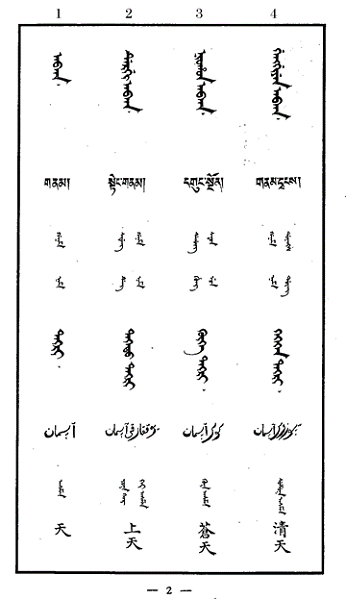Page from the Pentaglot Manchu Glossary

Annotation
The Qing empire was founded by the Manchus, and they used a language and a script that were distinct from those used in China Proper. From the 1630s to the 1760s, the Manchus went on to build an early modern empire consisting of its core of China Proper as well as the Inner Asian frontiers such as Manchuria, Mongolia, Tibet, and Xinjiang. Ruling over such a vast territory and a diverse array of peoples, the Qing state had to employ more than its two main administrative languages (Chinese and Manchu) in its daily operations. This page from the Pentaglot Manchu Glossary (Wuti Qingwen jian) provides a clear piece of evidence for the multilingual characteristic of the Qing empire. Entry 1, for example, lists the word heaven in five scripts: Manchu, Tibetan, Mongolian, Chaghatay Turkic, and Chinese.